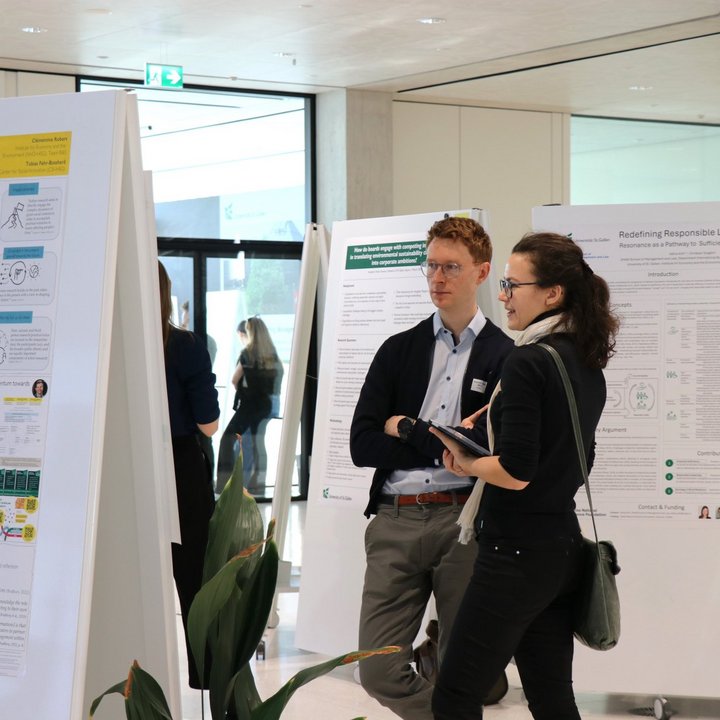
Research at the University of St.Gallen addresses sustainability from multiple perspectives, integrating environmental, social, and economic considerations to develop pioneering insights that contribute holistically to solving current and future grand challenges in business and society.
This is grounded in a long history: HSG was one of the pioneers in Europe in the late 1980s and early 1990s to establish a Chair for Business and Corporate Ethics, the Institute for Business Ethics (IWE-HSG), and the Institute for Economy and the Environment (IWOE-HSG). The contributions of outstanding St.Gallen academics such as Hans Ulrich (Business Administration), Hans-Christoph Binswanger (Economics), Peter Ulrich (Business Ethics), and Rolf-Peter Sieferle (Environmental History) are closely linked to these developments, and many graduates and young academics have benefited from their tenure at the HSG.
Today, more than 40 years later, the HSG is home to leading scholars and internationally renowned thought leaders in the fields of renewable energy management, sustainable finance, circular economy business models, diversity management, governance and democracy research, business ethics, and more.
A broad range of HSG institutes and centres conduct research in the area of responsibility and sustainability. Together they shed light on sustainable development from different perspectives. Currently, 16 institutes, centres, competence centres, and departments have a dedicated focus on sustainability topics. Further, more than half of all HSG institutes, centres, and departments integrate sustainability topics in their teaching and research activities.
All across HSG, scholars actively contribute to the global sustainability discourse impacting business, policy, and academia, which is shown by numerous peer-reviewed as well as practitioner-oriented publications on sustainability-related topics. These research outputs cover a broad range of topics related to the SDGs, including (but not limited to) climate and biodiversity, sustainable business & entrepreneurship, social cohesion, peacekeeping and many more.
The HSG Impact Scholar Community, our local – and the world’s first – spin-off of the Academy of Management Impact Scholar Community, is a central element in supporting SDG-related research that fosters positive social and environmental change. Currently, the community has around 80 members and regularly organises various events that aim to strengthen connections, provide inspirational perspectives, and promote interdisciplinary collaboration.
In addition to the Impact Scholar Community, HSG scholars have access to a variety of resources to support sustainability-related research. As example, the University of St.Gallen subscribes to several data providers offering Environmental, Social and Governance (ESG) data packages. Furthermore, several chairs organise decentral brownbag talks for their teams and interested colleagues from other parts of HSG. Finally, the HSG joined the Alliance for Research on Corporate Sustainability (ARCS) which comes along with a broad range of networking opportunities and access to seminar series.